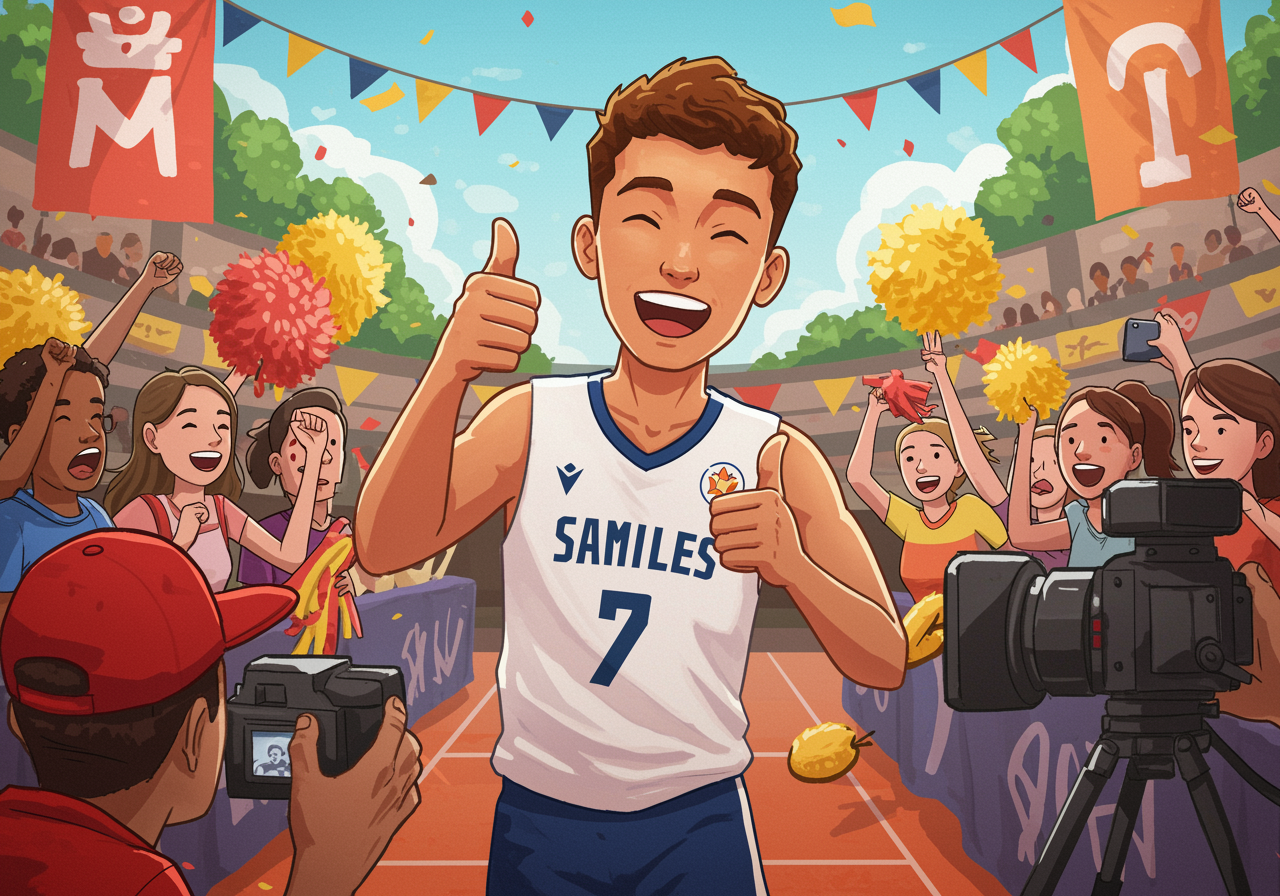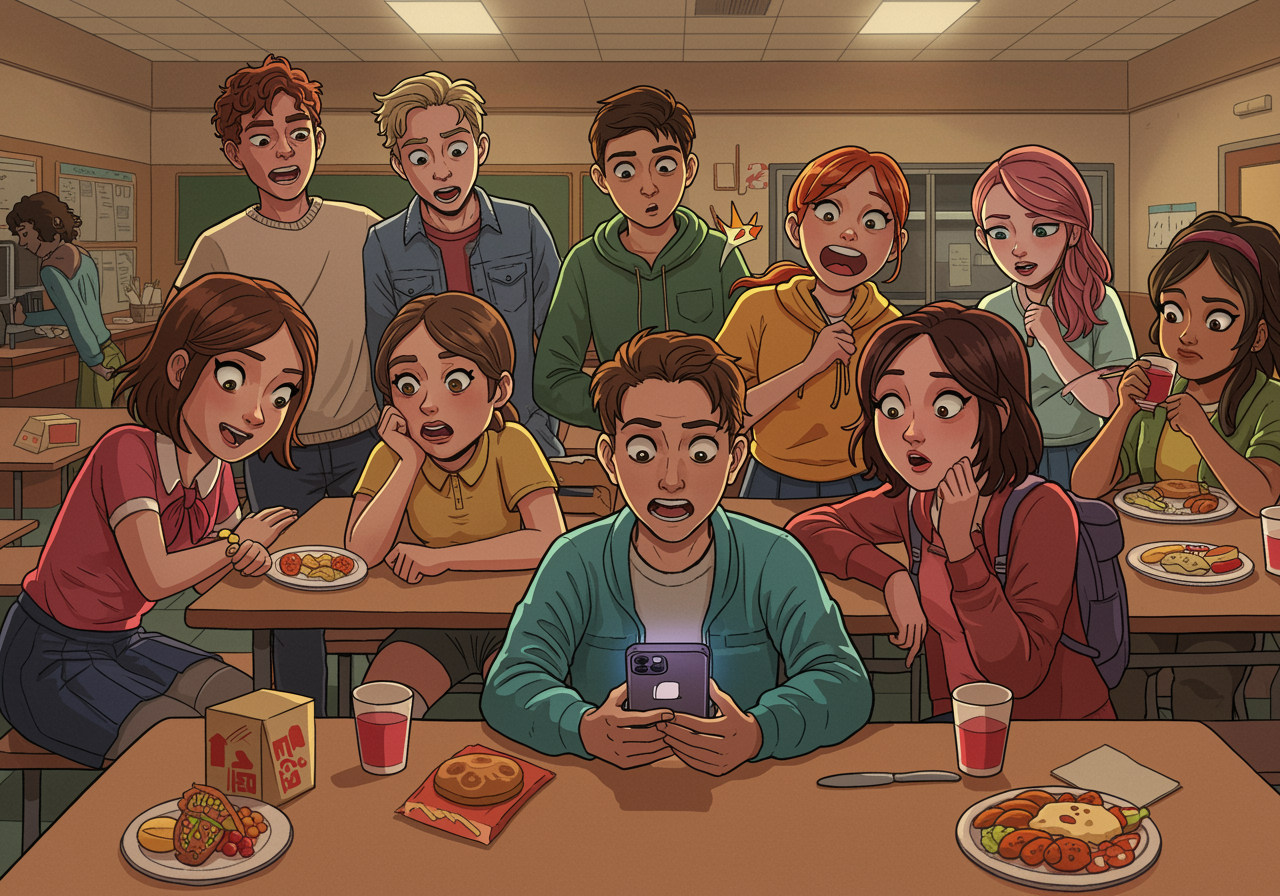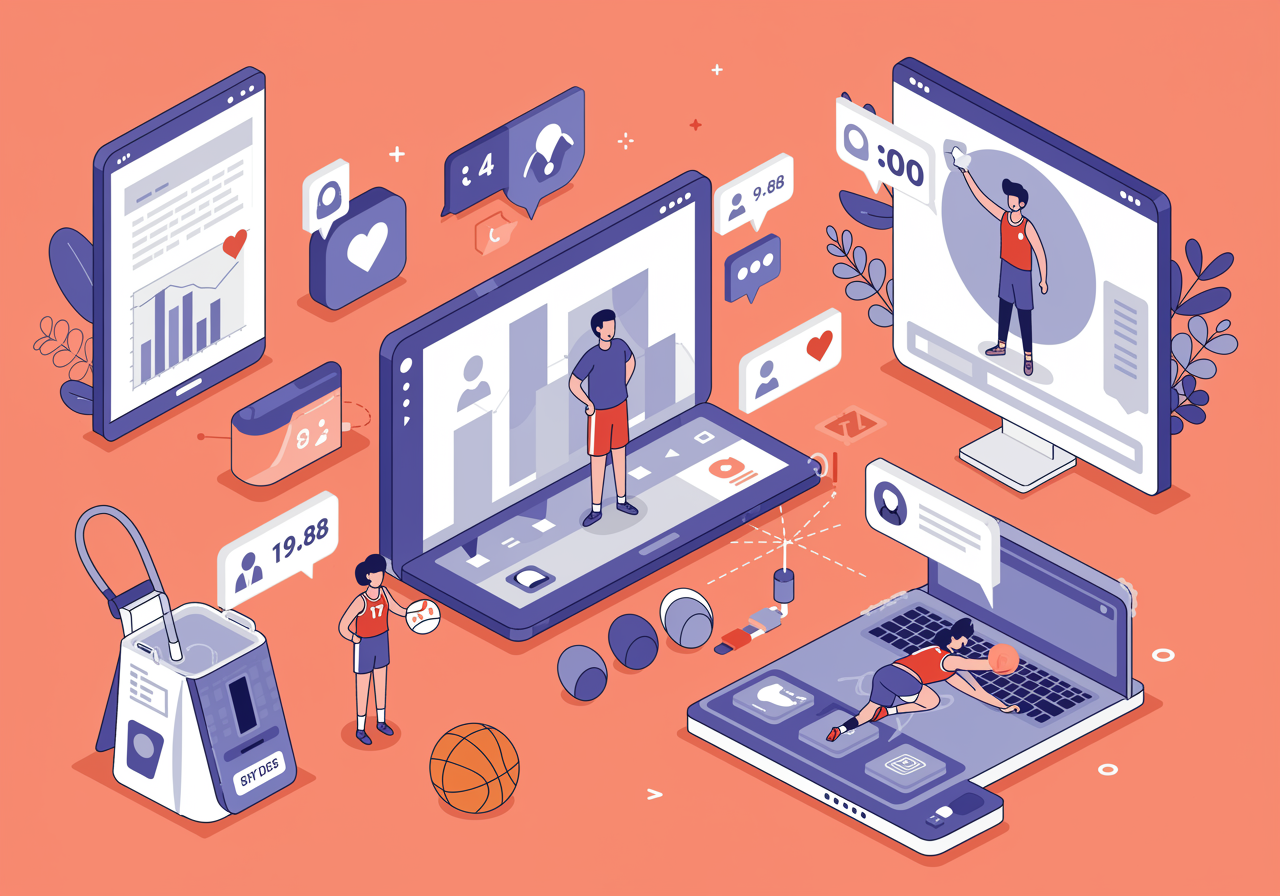When Athletes Go Viral: The Good, The Bad, and The Game-Changing
How one video clip can change everything for sports stars
Discover how viral moments can launch careers, create challenges, and teach us about the power of digital fame in sports.
Overview
In today's world, one amazing play or one mistake can be seen by millions in minutes. Athletes know that every moment on and off the field could become a viral sensation that changes their entire career. Understanding how these digital moments work helps kids think about their own online presence and builds empathy for people in the spotlight. It's a perfect way to talk about the human side of fame and how we all navigate our digital footprints.

Understand in 30 Seconds
Get up to speed quickly
- Viral = Lightning Fast Fame: When millions of people share a video or photo of an athlete, it can make them instantly famous or create big problems for their career.
- The Internet Never Forgets: Once something goes viral, it stays online forever, which means it can affect an athlete's reputation for years to come.
- Good Viral vs. Bad Viral: Amazing plays and kind gestures can launch careers, while mistakes or poor choices can damage endorsement deals and team relationships.
- Athletes Are Human Too: Behind every viral moment is a real person dealing with sudden fame, criticism, or pressure that most of us can't imagine.
Real Life Scenario
Situations you can relate to
Imagine you're at school and someone films you doing something embarrassing during lunch. Now imagine that video gets shared by every student in your school, then other schools, and suddenly millions of people have seen it. That's what happens to athletes when they go viral, except the whole world is watching. Think about how that would feel – exciting if it's something amazing you did, but terrifying if it's a mistake. Athletes deal with this pressure every single day, knowing that their best and worst moments might be captured and shared instantly. How do you think that changes how they act both on and off the field?

Role Play
Spark a conversation with “what if” scenarios
What if you were a famous athlete and someone recorded you helping an elderly person at the grocery store?
- Role play: Act out how you'd handle sudden positive attention – practice giving interviews and staying humble while millions praise your kindness.
What if a video of you arguing with a referee went viral and people were criticizing you online?
- Role play: Role-play writing a public apology and discussing with your 'team' how to rebuild your reputation and learn from the mistake.
What if your amazing game-winning shot became a viral sensation overnight?
- Role play: Practice handling instant fame – how would you respond to interview requests, social media followers, and staying focused on your sport?
FAQs
Frequently asked questions people want to know
Can viral moments really make or break an athlete's career?
Yes! Positive viral moments can lead to sponsorship deals, more fans, and better opportunities. Negative ones can cost athletes millions in lost endorsements and damage their reputation for years.
Do athletes try to create viral moments on purpose?
Sometimes! Many athletes and their teams use social media strategically to build their brand. But the most powerful viral moments usually happen naturally during genuine experiences.
What's the difference between being famous and going viral?
Being famous usually builds over time through talent and hard work. Going viral means instant, massive attention for one specific moment – which can be overwhelming and temporary.
Examples in the Wild
See how this works day to day
- Steph Curry's incredible long-distance shots regularly go viral, helping him become one of the most marketable athletes in the world (ESPN Sports Analytics)
- Simone Biles' supportive comments about mental health went viral and changed conversations about athlete wellness globally (Associated Press)
- When Giannis Antetokounmpo bought 50 chicken nuggets for a young fan, the video went viral and showed his generous personality (NBA Official Social Media)
- Soccer player Marcus Rashford's campaign to feed hungry children during COVID went viral and led to government policy changes (BBC Sports)
In Summary
What you should know before you start
- Viral moments can instantly change an athlete's career, reputation, and earning potential
- The internet preserves these moments forever, making digital decisions very important
- Athletes must balance being authentic with knowing millions might see everything they do
- Positive viral content often comes from genuine kindness, amazing skills, or inspiring stories
Pro-tip for Parents
You got this!
When discussing viral moments with your teen, focus on empathy first. Ask 'How do you think that person felt?' before jumping into lessons about digital citizenship. This helps kids see athletes as real people dealing with intense pressure, making the conversation more meaningful and helping them think about their own online choices more thoughtfully.

Keep an Eye Out For
Find these examples in everyday life
- Athletes responding to viral moments – both positive and negative – to discuss handling sudden attention
- Sports highlights that become cultural moments beyond just the game itself
- Stories about athletes using their viral fame to support causes or help their communities
Explore Beyond
Look up these related research topics
- How social media algorithms decide what goes viral and why
- The psychology of online fame and how it affects young people
- Digital citizenship and creating positive online content